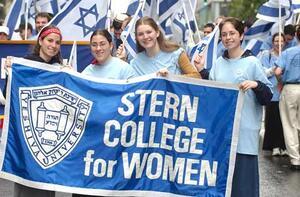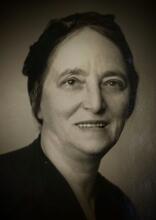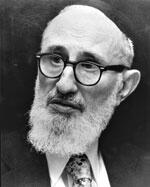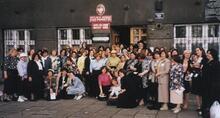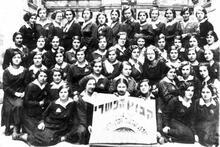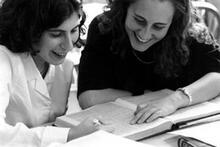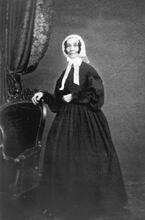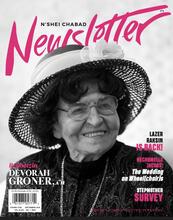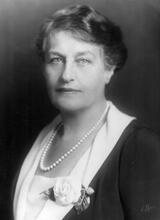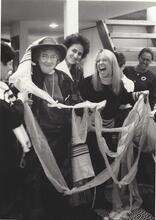Stern College for Women
Founded in 1954, Stern College for Women of Yeshiva University is the longest-standing college in America for women under Jewish auspices. It has attracted young women from both Orthodox and non-Orthodox Jewish homes interested both in secular university training and in traditional Jewish studies. Over its close to 60 years of existence, students increasingly have become interested in advanced training in Judaica, including Talmud, the hallmark of men’s yeshiva education. Their general studies majors have changed significantly. In the 1950s, many of these students looked towards careers as teachers. Presently, biology and psychology, along with business management, are the most popular areas of study.
Article
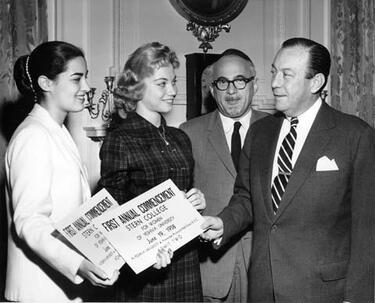
In September 1954, an inaugural class of thirty-two students enrolled at Stern College for Women, as Yeshiva University opened the first Jewish liberal arts college for women in America. In this picture from Stern's first commencement in 1958, New York City Mayor Robert F. Wagner, flanked by Yeshiva University Dean Dr. Samuel Belkin, presents certificates to Shirley Pasternak and Anika Wintner, members of the college's first graduating class.
Institution: Yeshiva University, New York
In September 1954, an inaugural class of 32 students enrolled at Stern College for Women, as Yeshiva University opened the first liberal arts college in America for women under Jewish auspices. The school was named in honor of the parents of Max Stern, one of the university’s major benefactors. Situated in the Murray Hill section of Manhattan, Stern College offered baccalaureate programs in the arts and sciences and religious education with a heavy emphasis on Judaic studies. Its dual curriculum of Jewish and general disciplines was modeled after Yeshiva College, the university’s men’s undergraduate school that had been established fifteen years earlier. The creation of Stern was an outgrowth of Yeshiva University’s postwar endeavor to both meet the changing needs of its Orthodox constituents and to expand Orthodoxy’s impact upon American Jewry and the larger national scene. During this same era (c. 1945 to 1955), Yeshiva University established a medical school, graduate schools of Jewish social work, education, and psychology, a community service department, and an undergraduate program for men with limited backgrounds in Judaica from both Orthodox and non-Orthodox homes.
Stern was designed to attract the increasing number of young Jewish women from both Orthodox and non-Orthodox Jewish homes who were then beginning to desire college training. In the previous generation, because few Orthodox families had contemplated sending their daughters to universities, Yeshiva University had felt no pressure or obligation to provide women with a comfortable higher education environment where they could study secular and religious studies together and where no one would attempt to undermine their religious commitments.
In the mid-1950s, Yeshiva University saw Stern’s particular niche as its offer to its students of preparation for careers, graduate study, and “management of a Jewish home and family.” Implicit too in that message was the understanding that this women’s college, placed within the world’s largest Jewish community, would provide its students, particularly those from smaller Jewish communities, with abundant opportunities for social engagements with potential marriage mates. From its inception, Stern College enrolled women from within and without the metropolitan area in almost equal numbers, a trend that continues to this day.
During its first score of years, Stern enrollment rose to 500 students as the school attracted not only graduates from its own Manhattan and Brooklyn Central girls’ high schools (established in 1948) and from other New York day schools, but those youngsters from “out of town” who had only Talmud Torah or Sunday school religious training. Under the leadership of Deans Dan Vogel, Norman E. Frimer, and David Mirsky, Stern College accommodated the diversified educational needs of a religiously heterogeneous student body that hailed from Conservative as well as from Orthodox Jewish homes through a multitiered Jewish studies program. Meeting the general educational needs of this first generation of students was a less challenging task because so many of the students wanted to be schoolteachers, either in the public or Jewish school system. This was a career that melded well with the students’ equally heartfelt desire to be wives and mothers.
In September 1977, Karen Bacon was appointed dean of Stern College. The first woman to occupy that post, this 1964 alumna of Stern had earned a Ph.D. in microbiology from UCLA and had served as an assistant professor of biology at the university before assuming the deanship. During her 43-year tenure (she is still in office), the size of the student body grew to 977 as of Spring 2019; 184 students are enrolled in the Sy Syms School of Business program, established in 1987, and the remainder are in the liberal arts college. However, the prior educational and religious profile of those who enroll has changed, and their range of Judaic studies and professional interests has diversified, even as Stern College graduates still attempt to harmonize careers with family lives.
Increasingly, the women drawn to Stern are graduates of Orthodox day schools. Those from nonmetropolitan areas who choose Stern have significantly better Jewish educations than their mothers and sisters of one or two generations ago, since they have been the beneficiaries of the proliferation of secondary Jewish schools in every area of the United States. Most students at Stern College spend a year of study in a women’s yeshiva in Israel, which has only intensified their ardor for intensive Judaic learning and strengthened their commitment to Orthodoxy. Conversely, as of 2019, less than fifteen percent of U.S.-born Stern freshmen (the school also recruits internationally) had only gone to Hebrew school or Sunday school, some of which were affiliated with the Conservative Movement.
Responding to a more learned student body’s desire for the most advanced training in Judaica, in 1980 Stern College reorganized its multi-tiered Jewish studies department to provide its students with greater facility in analyzing classical Jewish texts. The study of Talmud and allied rabbinic literature, the bedrock of learning in the traditional yeshiva and a discipline that some Orthodox Jews withhold from their women, was intensified and has since been pursued by some of the best students at Stern. Most significantly, the Graduate Program in Advanced Talmudic Studies, founded in 2001, is high-level program that has produced scholars who serve as intellectual resources for the Orthodox community in schools and women’s yeshivas in both the United States and Israel. While some students participate in Women’s Tefillah groups off-campus and occasionally a minority of students conduct a women-only megillah reading on the Stern campus, however, these women’s elevated Jewish expertise has not led most students to advocate for a greater participatory role for themselves in Orthodox ritual life.
Finally, Stern College students of this most recent generation are training for a wider variety of careers, and teaching school, primarily in Orthodox day schools, has become but one of several professional pursuits attractive to Orthodox young women who still still to combine professions with traditional Jewish family lives. As of the Spring 2019, biology was the most popular major in the liberal arts program at Stern College; psychology ranked second, English third, and Jewish studies fourth. Within the Syms program, 152 undergraduates were studying business and management, while 30 were accounting majors.
Commentator and Observer, Yeshiva University undergraduate student newspapers (1955–2019). File in Public Relations Office, Yeshiva University.
Gurock, Jeffrey S. The Men and Women of Yeshiva: Higher Education, Orthodoxy and American Judaism. New York: Columbia University Press, 1988.
Spring 2019 Fact Book, Registrar’s Office, Yeshiva University

